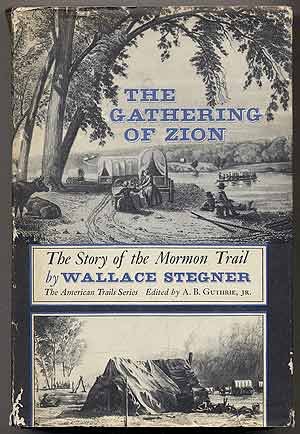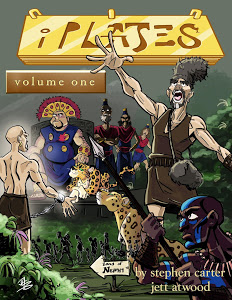Author: Rachel Whipple
-

Complicity
It’s one thing to know that what you are witnessing is wrong; it’s another thing altogether to know what to do about it. I do know that inaction is often taken as tacit approval, and I do not want to be guilty of the sin of complicity
-
Bloggernacle PSA: fMh Tracy McKay Scholarship
“If you haven’t heard around the ‘nacle– The fMh Tracy McKay Scholarship fund drive is in full force! Last year many around the bloggernacle rallied together to help the awesome Tracy McKay finish the last few months of her degree when her ward could no longer help her out. fMh is keeping the tradition going…
-
Guest Post: The Parable of the Two Sons
My friend and neighbor has written a beautiful parable that I am pleased to share with you today. David Harding works actively in his ward and neighborhood. His daughter is my daughter’s best friend. As those of you with children know, it is a great blessing to have your offspring fall in with good people…
-

Not quite “Faith in Every Footstep”
It’s no surprise that my favorite book about the pioneers was not written by a Mormon.
-
I’m not sorry
The problem with repenting is that it is not just an intellectual exercise. It’s emotional. To repent, one must feel penitent. But how can you repent when you don’t feel like repenting?
-
We’re not equal
God may be no respecter of persons, but everyone else is. We’re not equal, and the roles we fulfill in the church are not equal, so stop saying they are.
-
No. Not maybe. Not “We’ll see. I think I can do that.” Just no.
No. Thank you, I will not commit to doing that. No. That makes me uncomfortable. No. I wouldn’t have time to do that well and still meet my other obligations in a satisfactory manner. No. I don’t have the skills necessary to do that job. No. I’m pretty sure I’m just not going to do…
-

Get with the program
For members and visitors alike, that little sheet of cheap white copy paper is invaluable when they need it. But usually, they don’t.
-
Why I’m glad Heavenly Mother is as yet uncorrelated
There is something creative about getting to know God: to recognize the infinite attributes of God and to express that ineffability in testimony and story, art and song. Sometimes, one person’s vision of God becomes codified, set in stone as the truth for all people. It may be a beautiful, profound view of God, one…
-

Stewards of Prudence and Altruism
Prudence and altruism combined allow us to delay personal gratification or even make sacrifices for the benefit of future people who have not yet been born. The hearts of the fathers must turn to their children
-
Reproaching Jesus
It was the women who loved him who were willing to reproach him. First it was his mother: “Son, why hast thou thus dealt with us? behold, thy father and I have sought thee sorrowing” (Luke 2:48-54). She did not understand his actions, this little twelve-year old son of hers. And he didn’t seem to…
-
The shoe’s on the other foot
I wish that we, Mormons, especially those raised in the church, would assume that we know as little about other religions as we complain they know about us.
-
Forced Testimony
And so we have a tension: the imperative to share our testimony, and by so testifying to reinforce and strengthen it, opposed to the need to keep our most sacred knowledge untarnished and protected from the cheapness of overexposure.
-
Giving Away Sins
Even knowing how much happier I am when I choose to give away a small sin or vice, I still hold so many of them close to me.
-
Lenten Mormon
I’ve been observing Lent for a few years now. And every year I run into consternation from other latter day Saints. Every year I’m told “Mormons don’t observe Lent.”Last year I reflected on this at the end of Lent. I fast as a Mormon, but that doesn’t mean I can’t take advantage of the period…
-
Fragile Sundays
It was one of those fragile, vulnerable Sundays again. I’m like that sometimes, going through church shaking like a leaf, on the edge of my composure. It’s a kind of weakness, to always be close to tears, like to be overcome at any moment. I’m not sure why some Sundays hit me that way. Perhaps…
-
BSA: Morally Straight
The decision may come today. Will the Boy Scouts of America allow gay leaders and youth to participate in their program? I have gay relatives, friends, neighbors, and acquaintances. Some of them are great. Some I love. Some I’d rather not spend much time with because I find them annoying. After all, they are real…
-
My missionary moment
Our stake president has challenged all members of our stake to have a “missionary moment” this year. I never served a mission and I don’t like doing overtly missionary-type activities. But his challenge did bring to mind one of the most important missionary experiences I have ever had. It was more than a decade ago.…
-
Tracy McKay fMh Scholarship
Our sisters and brothers in the bloggernacle have turned their virtual relationship into doing tangible good for those in need. Yesterday, Lisa at fMH announced the Tracy McKay fMh Scholarship. I remember last year when Tracy’s ward financial assistance was cut and the immediate action by her fellow bloggers to raise enough money to get…
-

How a concussion made me think of Stephenie Meyer and Francis Hutcheson
Last semester, my first semester studying Greek, I sustained a mild concussion. I have mostly recovered now. I still have problems with bright lights that makes nighttime driving intolerable, but for the most part, I’m functioning normally. But for a few weeks there, I couldn’t think straight. It hurt to concentrate. Reading even a light…
-
Resolved:
I generally hate New Year’s Resolutions, mostly because experience has taught me that I will fail to carry through. I don’t like failing. It seems that we usually pick for resolutions something about which we are conflicted. The resolution may be about losing weight, which is the conflict of habit and genetics against a health…
-
A Prayer of Sorrow and Hope
On this day, on every day, let us mourn with those who mourn. For our hearts are broken, and all the sorrow and pain and suffering of the world has fallen in the shattered shells of ourselves. Let us take us these fragile broken pieces and lay them on Thine altar. Let us make our…
-
School Prayer
I’m not a fan of public prayers in public places other than churches. It makes me feel a little bit uncomfortable. Some of this may be my contrarian reaction to prayers in classes at BYU and to the often earnest but uncomfortable prayers offered up before dramatic performances. I don’t suppose visiting theatrical companies mind…
-
Every Sunday
Our Sunday of recovery from food poisoning was delightful because it was a one time surprise. But missing a couple of Sundays with our new ward family only made me feel less inclined to get back in the saddle.
-
Still Outside
As a Mormon, I’m saddened that Mitt Romney lost his bid for the presidency. He tried so hard, for so long, but just couldn’t quite pull it off. I have many friends, neighbors and relatives who have fasted and prayed for Romney, and I am sure they are hurt and disappointed. We don’t have a…
-
Halloween!
I really enjoy Halloween. I’ve always liked dressing up and making costumes. Over the years, I’ve learned that the trick to costumes is not complete accuracy, but suggestion. Like a good suspense movie, an audience needs only to be directed. Then they create the full costume in their minds. So my pioneer costume, which I…
-
Performative Religion
To throw another idea in the faith vs. works debate: “Faith is not equivalent to belief or certainty. Faith has more to do with commitment. Faith is fidelity.” Times and Seasons is a place that respects the faith of Latter-day Saints. As someone who often struggles with the faith of belief, I cling to the…
-

Book of Mormon Comics
I love stories. A narrative strikes me as the most fundamental way of ideas with other people. And by ideas, I mean not only the bare events of the narrative, but also abstract concepts, morals, and emotional truths. It makes sense to me that our basic scriptural texts have strong narratives. The Old Testament is…
-
If she wants to…
Women can go on missions, if they want to. Now that they can go at 19, some will go who may not have wanted it quite enough to wait until they turned 21. But it is still not the same as for men, who have a clear expectation and strong social pressure to serve missions…
-
Forget Caffeine: Where’s the Ironport?
The recent hubbub on BYU’s campus about the selling of caffeinated drinks misses the mark. Sure, there is some demand for caffeine; this is a college campus. It’s not about the flavor. It’s about sleeping too little and needing a boost to remain conscious through early morning or afternoon classes. (Is there any class harder…
